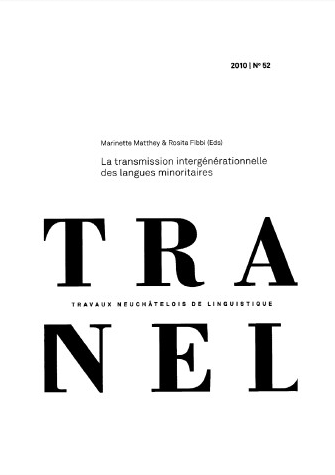De la langue d'origine à la langue héritée : le cas des familles espagnoles à Bâle et à Genève
DOI :
https://doi.org/10.26034/tranel.2010.2814Résumé
This contribution is based upon the analysis of 36 interviews conducted with persons from 12 families belonging to three generations, based in Geneva (7 families) and Basel (5). Our aim was to verify whether a general tendency to assimilation would verify with the three generations model (Fishman, 1972). We found that just over a third of the migrants' grandchildren understand or speak the language of their grandparents, and that they are proud of it. Our data does not give evidence of any significant difference between male and female respondents in terms of willingness to transmit a particular language, but they do show the existence of strategies (in terms of matrimonial or childcare strategies) which favour the maintenance of Spanish, and also a difference between Basel and Geneva as regards attitudes towards plurilingualism. Indeed, in Geneva, where the maintenance of Spanish is more salient, attitudes towards plurilingualism are more favourable than in Basel.Téléchargements
Publié-e
01-01-2010
Comment citer
Merle, M., Matthey, M., Bonsignori, C., & Fibbi, R. (2010). De la langue d’origine à la langue héritée : le cas des familles espagnoles à Bâle et à Genève. Travaux neuchâtelois De Linguistique, (52), 9–28. https://doi.org/10.26034/tranel.2010.2814
Numéro
Rubrique
Article thématique


